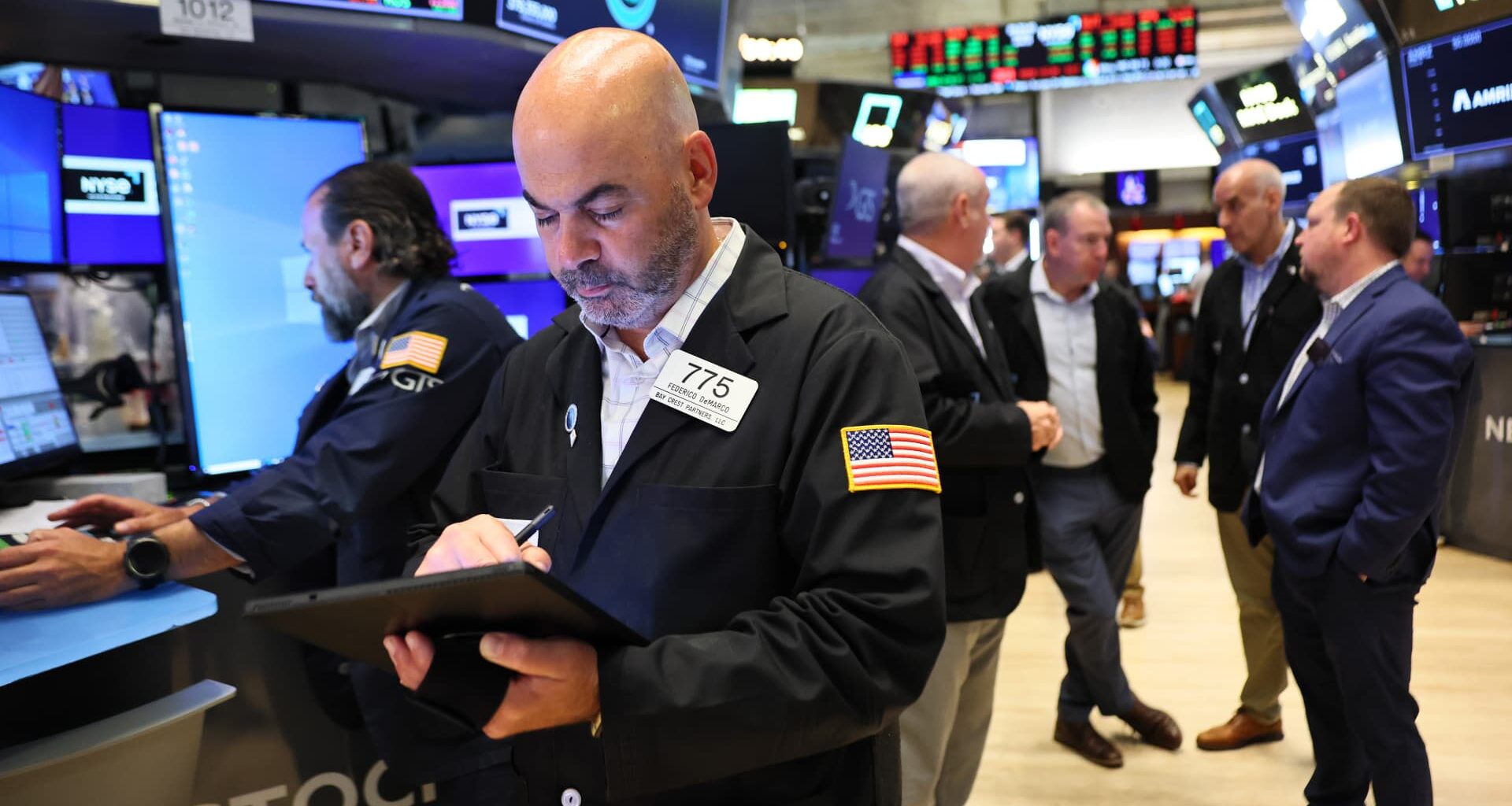Traders work on the floor of the New York Stock Exchange during morning trading on June 23, 2025 in New York City.
Michael M. Santiago | Getty Images News | Getty Images
Stocks rose on Friday, putting the three major averages on pace to round out the week with gains.
The Dow Jones Industrial Average gained 145 points, or 0.3%. The S&P 500 was higher by 0.6%, supported by a surge in shares of names like Gilead Sciences, Monster Beverage and Live Nation following their strong quarterly results. The Nasdaq Composite also jumped 0.7%, a move that places the index on track for another record closing high.
The major averages are currently heading for a winning week, with the 30-stock Dow at a 1.2% week-to-date advance and the broad market S&P 500 up 2.2% in the period. The tech-heavy Nasdaq is poised for a 3.6% climb on the week.
Gold prices, which were already rising this week on hopes of a Federal Reserve interest rate cut, soared to record highs Friday on a Financial Times report of a possible levy on imported gold bullion bars. That also lifted shares of gold mining stock, with the Vaneck Gold Miners ETF (GDX) up 1% to a 52-week high.
The moves come after the Dow, along with the S&P 500, closed in the red on Thursday, while the Nasdaq outperformed, closing at a record. The blue-chip index saw some sharp swings during the day, up 305 points at its high and down nearly 394 points at its low.
President Donald Trump’s “reciprocal” tariffs took effect at midnight on Thursday, with some of the steepest duties including Syria’s 41% and Laos’ and Myanmar’s 40% rate.
Stocks initially rose Thursday morning after Trump announced a day earlier that his 100% tariff on imported semiconductor chips would not affect companies that are “building in the United States.”
Going forward, the main area of focus for investors continues to be watching Trump’s trade policies play out, said Thomas Martin, senior portfolio manager at Globalt Investments.
“There’s less turbulence with tariffs, but there’s still plenty of turbulence. There’s still plenty of questions out there as to how they’re going to affect companies’ decision making, supply chains, costs, margins, pricing, how it’s going to affect consumers and whatnot,” Martin told CNBC. “So I think there’s still a lot of a lot of uncertainty associated with the tariffs. It’s still the most important thing, at this point, that just has to be worked out.”
The president also announced Thursday afternoon that he has selected Stephen Miran, chair of the Council of Economic Advisors, as his pick to replace Adriana Kugler on the Federal Reserve Board of Governors. Miran will serve out the rest of Kugler’s term, which expires in January, following her resignation last Friday.

